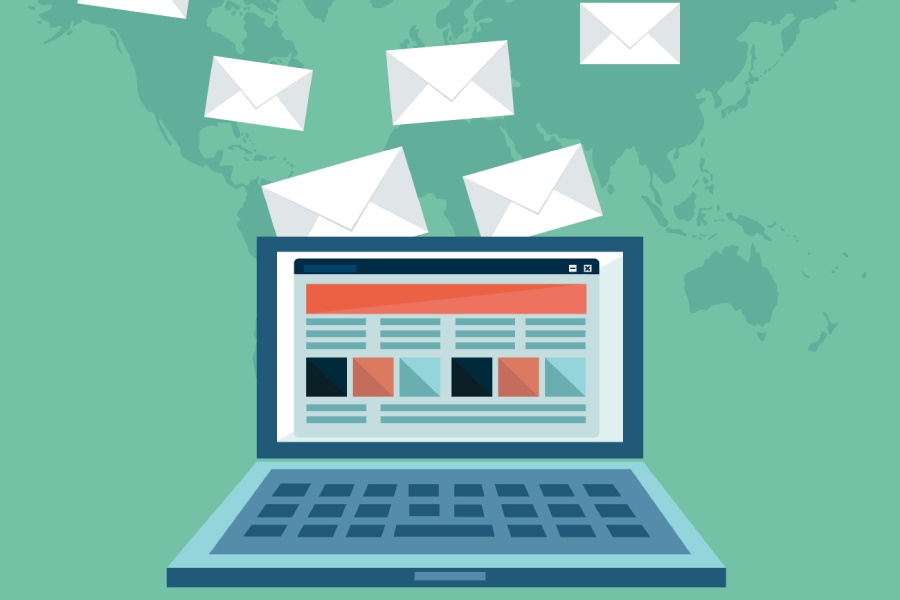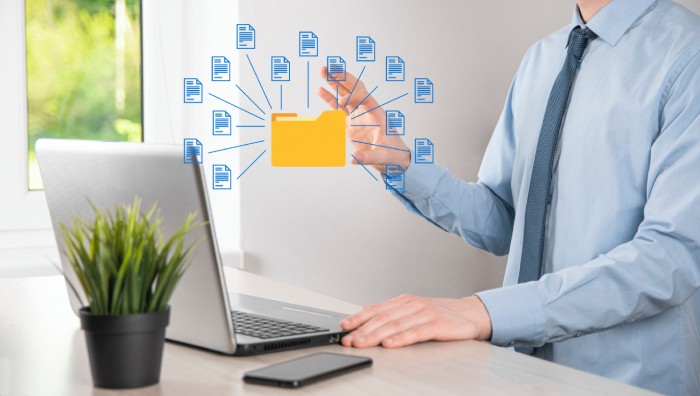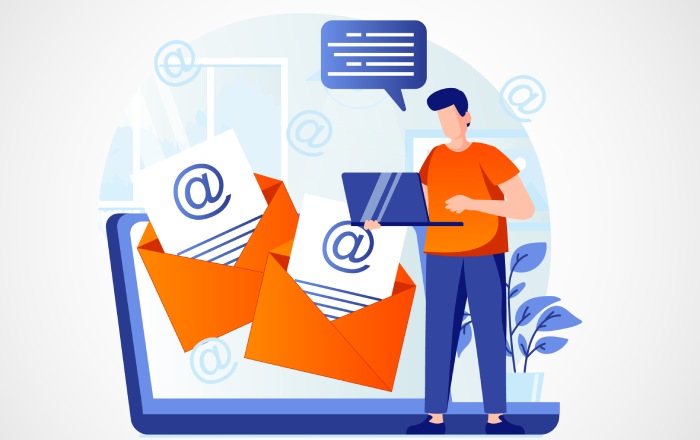Learn about the importance of email archiving and compliance for businesses in today’s digital age. Businesses need to adopt a proactive approach to protect themselves against potential legal or regulatory issues related to Email Archiving and Compliance. In this informative article, discover the benefits of email archiving, such as legal and regulatory compliance, safeguarding against data loss, and enhancing overall productivity.
In today’s digital age, businesses rely heavily on electronic communication to facilitate their operations. Email has become a universal tool allowing businesses to communicate seamlessly with clients, partners, and employees. However, as the volume of email data grows, businesses must protect themselves against legal or regulatory issues.
An area where email archiving and compliance comes in. In this context, email archiving and compliance are critical for businesses, as they help to ensure legal and regulatory compliance, safeguard against data loss, and enhance overall productivity. This article will examine the importance of email archiving and compliance for businesses and discuss some of these practices’ key benefits.
What is Email Archiving, and Why do Businesses Need it?
Email archiving is the process of preserving emails in a searchable format for various reasons, such as:
- Business Continuity and Disaster Recovery: Email archiving ensures that organizations can access critical information in case of a system failure or other disasters, allowing them to resume operations quickly.
- Internal Audits and Investigations: Organizations can use archived emails to investigate any misconduct or other incidents and identify any breaches of policies or regulations.
- E-discovery for Litigation: Email archiving helps organizations quickly and easily search for and retrieve specific emails related to a legal case.
- Regulatory Compliance: Email archiving helps organizations comply with regulations and avoid costly penalties for non-compliance.
- Records Management: Archiving emails ensures that organizations have a complete record of their communications, which can help track projects, monitor employee productivity, and improve customer service.
Types of Email Archiving
There are different types of email archiving solutions available, including:
- On-premises: On-premises solution is installed on the organization’s servers and managed internally. On-premises archiving gives organizations complete control over their email data and allows them to customize the archiving process to meet their needs. However, on-premises solutions can be expensive to deploy and maintain and require dedicated IT resources.
- Cloud-based: The Cloud-based solution is hosted by third-party providers and accessed over the internet. Cloud-based archiving is typically more cost-effective than on-premises solutions and requires minimal IT resources. However, organizations must rely on the provider to secure their data, and there may be concerns about data privacy and ownership.
- Hybrid: A Hybrid solution combines on-premises and cloud-based archiving. Hybrid archiving allows organizations to keep their most critical data on-premises while using the cloud for less critical data. Hybrid solutions enable organizations to customize their archiving process and scale their archiving capacity as needed.
What are the Benefits of Email Archiving?
Email archiving has existed for years, but not all organizations utilize its benefits. Here are reasons why organizations need email archiving:
- Storage: Email archiving moves data to a secure off-site server or cloud environment, freeing up space on live servers.
- Restoration: Archiving data takes up less space, speeding up the restoration process. Non-archived emails are easier to restore as the mail server’s data load is reduced.
- Security: Archiving data provides continuous backup and disaster recovery capabilities, safeguarding data with a guaranteed 99.9% uptime and financially backed service level agreement.
- Productivity: Archiving eliminates email box quotas and the need for employees to spend time deleting or moving emails. Access to archived and backed-up email data empowers employees to search for and retrieve specific emails without involving IT.
- Compliance: Many industries require organizations to keep business records, including emails. Email archiving ensures compliance and helps organizations meet stricter industry regulations.
Complying with Regulations
1. Regulations Related to Email Archiving
In 2006, a law was enacted to mandate electronic data archiving, requiring businesses to store email records for long-term access instead of simply deleting them when no longer needed. Compliance with email archiving regulations necessitates locating the stored data, searching through it efficiently, and retrieving it on demand. Businesses must also understand how to use the system effectively, and failing to comply with federal email archiving laws may result in severe consequences.
2. Consequences of Non-Compliance
Non-compliance with federal email archiving laws can significantly threaten an organization’s financial well-being. Heavy fines, court costs, contempt of court, and an automatic guilty verdict are the potential consequences of failing to comply with regulations. Legal issues may arise at any time, and non-compliance can be a costly mistake. Therefore, businesses must ensure compliance with email archiving regulations to avoid adverse outcomes.
GDPR Email Archiving Legal Obligations
The GDPR (General Data Protection Regulation) mandates that any organization that handles the private information of an EU citizen must comply with the regulation, regardless of its location, requiring organizations to provide access to personal data, correct any inaccuracies, and disclose how the information is used and the individuals who can access it.
Regarding email archiving, GDPR requires organizations to safeguard EU citizens’ private information against unauthorized disclosure or damage. A requirement similar to the security measures outlined by other regulations like HIPAA and Sarbanes Oxley. Therefore, organizations must adhere to high standards when implementing email security measures to protect email data.
GDPR requires organizations to respond to citizens’ requests for accessing or correcting their private details within 30 days. An email archiving solution can facilitate faster access to email data than traditional backups, provided email messages are appropriately indexed. Furthermore, creating a copy of every email through the mail server is essential to ensure the retrieved email is authentic.
How to Implement Email Archiving and Compliance?
Implementing email archiving and compliance requires several steps. It’s essential to choose the correct email archiving solution that will meet the organization’s specific needs, which involves considering factors such as the organization’s size, the volume of email traffic, and regulatory requirements.
Creating a compliance policy that outlines the procedures and rules employees must follow is essential. Such a policy should specify how long emails will be archived and how they will be accessed and retrieved. Finally, employee training and awareness are critical to ensure that everyone understands the compliance policy and knows how to use the email archiving solution properly.
To comply with consumer data privacy regulations, system administrators, data stewards, and data governance teams need to implement compliance-driven email archiving solutions. To achieve this, organizations should follow these s even steps:
- Capture and archive all email data in a common repository using multiple collection methods.
- Comprehensive capture and indexing of metadata of all email content and its attachments are necessary classify, tag, and monitor emails for easier supervision and alert notifications.
- Enforce retention and legal hold policies easily at the organization, user, email, or metadata level.
- Provide powerful search capabilities to simplify eDiscovery with case folders.
- Purge data from the source system once retention periods are achieved to reduce costs and maintenance.
- Provide self-service access to archived emails in a centralized repository with an email client-like interface to eliminate personal archives and reduce duplicate copies.
These steps will ensure successful compliance-driven archiving while making emails easily discoverable for faster compliance.
Final Words
Email archiving is critical to any organization’s data governance strategy, and compliance is essential to protect sensitive information and avoid legal and financial penalties.
Organizations can implement a comprehensive and effective compliance-driven email archiving solution by following the seven steps outlined in this article. It is essential to regularly review and update your policies and procedures to ensure ongoing compliance with changing regulations and evolving best practices.


